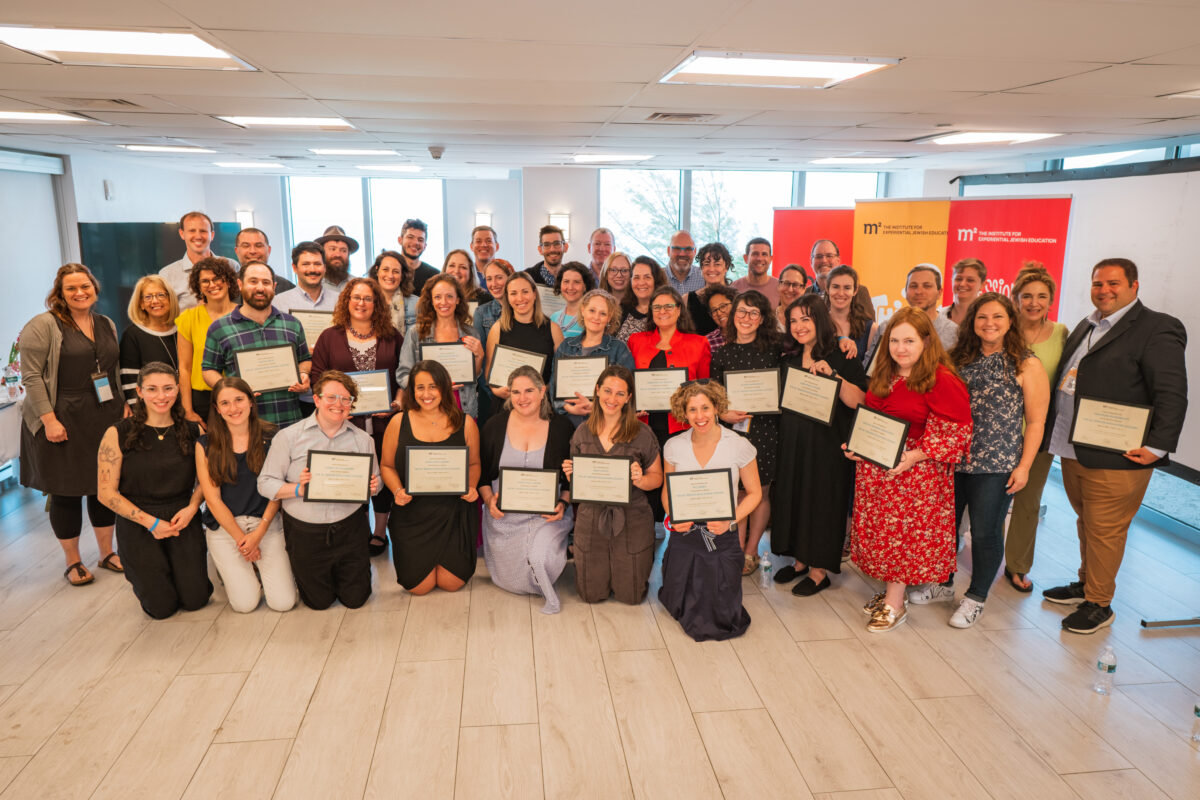Judaism has lots of entry points, and within education, finding the relevant ones for your learners is key to building personal meaning. The Talmud, the primary source of rabbinic law, filled with rabbis engaging in healthy and vociferous debate, offers many opportunities to add their own commentary and interpretations. For me, that entry point is through art and museum objects. Questioning, however, is key to examining other perspectives, contexts, and insights, and is one of the ways that Judaism has remained vital and relevant for thousands of years across multiple communities.
Today, conversations about all aspects of Jewish life, from communal celebrations to family life to Jewish education, are vital, particularly in communities where sustainability and survival are at the forefront of everyone’s mind such as in Istanbul, Turkey, and Helsinki, Finland.
I have worked in the Jewish education sector for nearly 25 years — in London, which boasts a large Jewish community and many varied Jewish schools, and more recently, in tiny Jewish communities where there is one synagogue and school in the entire country.
Smaller Jewish communities comprise about 15% of the Jewish world today. Many have diverse and rich histories and narratives but lack the support systems, infrastructure, and vision to ensure their future success. To drive their sustainability, creative solutions need to be devised and administered that bring together educators from all different types of communities, large and small, urban and rural, established and developing, to agitate the existing method while striving to bring about long-term change and success. While each community has its own unique challenges, by working together to brainstorm innovative solutions to shared issues, we can strengthen Jewish communities as a whole.
Raising the voices of small communities
As an educational consultant, I’ve worked with communities in places like Warsaw, Istanbul, and Helsinki, helping teachers get the resources and training they need to educate the next generation. In most of these schools, the Judaic staff consists of one or two educators who have learned to teach on the job, often relying on outdated methods and materials. Feeling isolated and lacking in a supportive network, my role has given them the space and opportunity to learn, grow, and challenge their Jewishness both professionally and often personally.
These smaller communities often consist of families with one non-Jewish partner, but since the community usually has one synagogue, generally Orthodox in denomination, these blended families need to feel a sense of belonging to the formal Jewish framework. Therefore, developing opportunities for supportive, inclusive family education and experiential education has been paramount.
Embracing diversity and values
Since embarking on my freelance role, I have had little time to take a step back and consider my own educational philosophy and methods. Yet, for the past year, I have been privileged to participate in the Senior Educators Cohort (SEC) at M2: The Institute for Experiential Jewish Education, which has offered and enabled me to learn about new and creative pedagogies for experienced Jewish educators — and it was wonderful. The cohort hailed from large American communities like Los Angeles and Tel Aviv as well as smaller European communities such as Stockholm. With an emphasis on training leading Jewish educators who work in different Jewish communities and organizations around the world, the curriculum as well as the opportunities to learn and hear other perspectives and experiences, was highly rewarding.
Having participated in other fellowship programs in the past, the main difference with SEC for me was the chance to discuss, grapple and discern who I am as an educator rather than focusing on ‘what I am teaching.’ Conversations over dinner, during breaks, or during workshops, broadened my understanding of how I apply my skills of analysis and interpretation to all areas of my work irrespective of if it’s a piece of Torah text, modern artwork, or learning about the complexities of the Finnish Jewish community. Learning from a member of my cohort who runs a fellowship for Jewish leaders inspired me to look for ways to encourage growth for the schools and communities I work with.
With M2, I also learned the importance of identifying the values that drive the vision and mission of a school or organization. As a result, I will be implementing this values-based approach in communities where I consult, including Istanbul and Dublin, in the coming year.
Building stronger connections to Jewish engagement has always been a pivotal part of my work. The emphasis on how we see these and what value we place upon them has been a real eye-opener for me, thanks to M2’s SEC fellowship.
Nic Abery is an educational consultant working with Jewish schools and communities across Europe. She is also the director of LooktoLearn, an integrated educational initiative that teaches about Judaism and culture through museum art, objects, and culture. She has worked in the Jewish education sector for nearly 25 years, first as an elementary school teacher, and for the past 12 years, as an educational consultant.
Credit:Source link



